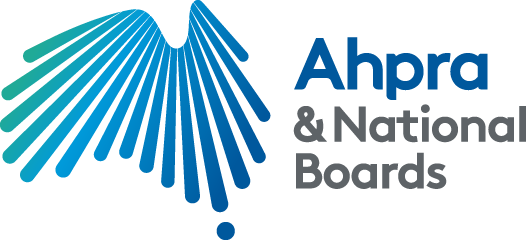21 Aug 2019
Keep perspective; and seek help. That’s the message from a new video launched today by the Australian Health Practitioner Regulation Agency (AHPRA) and National Boards.
This video, the second practitioner experience video published this year by the national health regulator, provides a first-hand account of the notification process from a practitioner’s perspective.
AHPRA CEO Mr Martin Fletcher said the video series aims to share practitioners’ experiences, recognising what are common reactions, while proactively encouraging practitioners to focus on likely outcomes and seek support.
‘Many practitioners have told us that they would have benefited greatly from hearing the voice of other practitioners who had gone through this experience — and come out the other side. They have also told us that when they are the subject of a notification, they immediately think they will lose their registration and their livelihood – that it’s a catastrophe.’
‘We understand that practitioners may feel this way. However, our data show a different story. While we have a clear focus on patient safety, many notifications end without the need for regulatory action and are often closed following initial assessment, without the need for an extended investigation.’ Mr Fletcher said.
In the video, a surgeon describes his feelings of guilt and anxiety after a poor patient outcome and the notification that followed. As time went on, his worries increased, and he found it difficult to maintain a realistic perspective about what was likely to occur. He reflects on the value of speaking with family and friends, as well as the ongoing support of his GP and a psychologist.
Medical Board of Australia Chair, Dr Anne Tonkin said the latest video highlights the importance of getting support during the notifications process.
‘We know that many health practitioners will receive one or more notifications during their career. For the vast majority, no regulatory action will be taken. As Phill reminds us in this video, it’s important—although difficult—to try to keep in mind what are the likely outcomes, and keep things in perspective,’ Dr Tonkin said.
‘Notifications are part of the system for keeping the public safe while they receive medical care. We also want to make sure that practitioners are safe and well, and this often needs particular focus if they receive a notification. We know that most practitioners will feel stressed during the investigation of a notification. We want to reinforce Phill’s message that it is really important to reach out to your support networks during, and after, the notification process,’ she added.
The Royal Australasian College of Surgeons (RACS) have commented on the new video as a resource to help practitioners.
RACS President, Mr Tony Sparnon, says that the health and wellbeing of its Fellows is an important priority for RACS. Notifications can be a difficult and potentially confronting time and have the ability to significantly impact the health of the surgeon.
‘This new AHPRA video is a great way to encourage surgeons to be open and honest about their experience during a notification process. We encourage our Fellows to share their concerns with their peers, other doctors, family, or friends.’ Mr Sparnon said.
Registered health practitioners and their support networks will be encouraged to use this new resource when they are involved in the notifications process.
You can view the video below or on the AHPRA website, YouTube and Vimeo channels.
For further information
